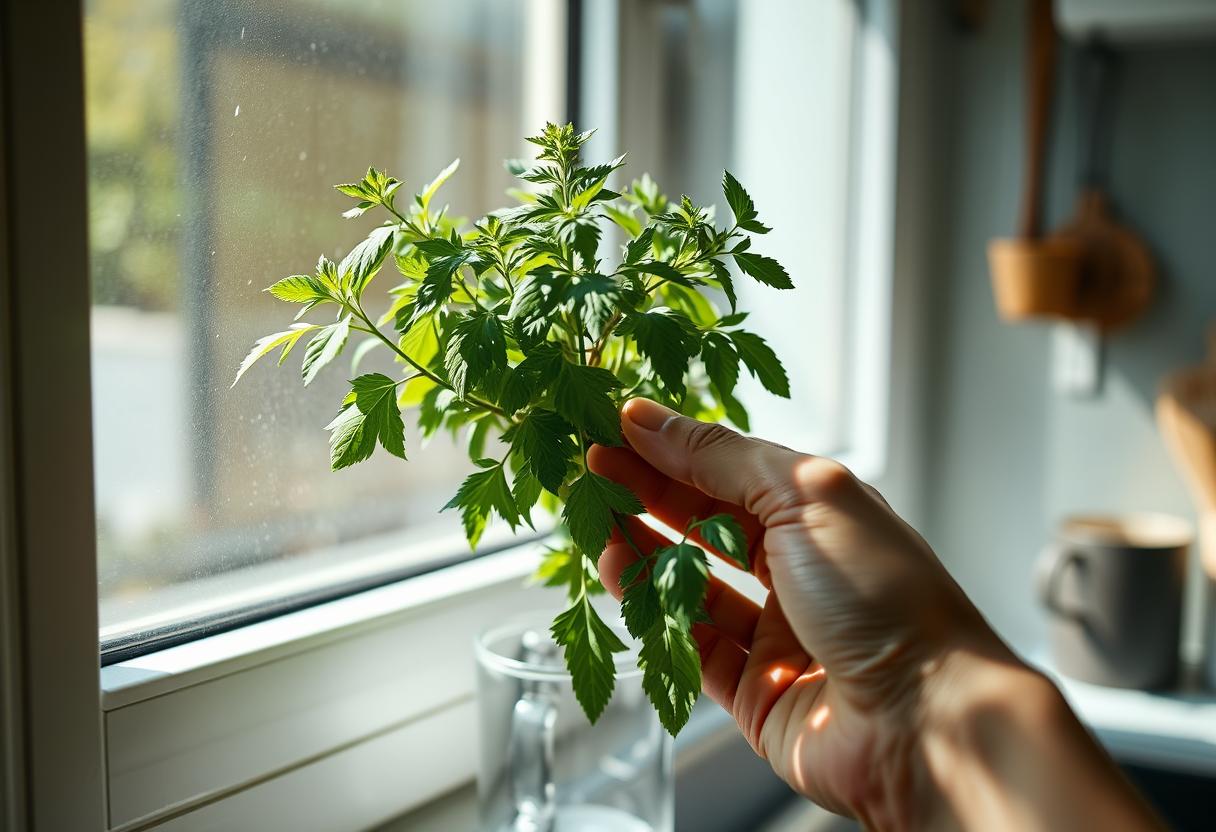
Tulsi is earmarked in Hindu rituals especially during events such as Krishna Janmashtami, that is the birthday of Lord Krishna. It is common knowledge that in Hinduism Tulsi is a sacred plant and this importance is well grounded in mythology, culture and faith.
Symbolic Significance of Tulsi
Tulsi is the deity regarded as the incarnation of goddess Vrinda worshipped by Lord Vishnu of which Lord Krishna belongs to. It is also holy to pluck a tulsi and it is prestigiously known that offering tulsi leaves to Lord Krishna during the prayers yields an incommensurable spiritual advantage. It has been mentioned in the scripts that it was produced at the time of churning of ocean (Samudra Manthan) and was chosen by Lord Vishnu to be his beloved plant. Thus, Tulsi is not only a plant but also an emblem of devotion, chastity and sacredness of soul.
Tulsi plant and its significance in the occasion of Krishna Janmashtami
Janmashtami or the birth anniversary of Lord Krishna is most enthusiastically observed by the followers. Tulsi leaves are used in most of the rituals that are observed during this festival. Bhaktas prepare a special item called “PRASAD”, also known as “BHOG” which is sweet and fruits offered to Lord Krishna. Tulsi leaves are of course placed in these offerings, which represent the absolute and spontaneous offering of the devotees.
Bhagavad Gita, a sacred scripture of Hinduism, was stated that the Lord accepts even if a man or woman offers unto Him a drop of water or a fallen leaf for worship. Tulsi is considered the most auspicious of all the leaves and even its inclusion is supposed to increase the sacredness of the item to be offered. People also believe that Lord Krishna has a special love for Tulsi and thus becomes rather more responsive to the prayer if it is offered using this plant.
Cultural and Traditional Relevance
Tulsi leaves are used in many Hindu functions and events, but a significant focus is made during the event of Krishna Janmashtami. Tulsi was also used in the rituals to indicate the relationship between the devotee and the god. There is a saying that mere offering of Tulsi leaves appeases Krishna but at the same time frees the devotee’s mind or conscience from all sorts of sins.
In most Indian homes, the Tulsi plant is offered daily prayers and on the occasion of Krishna Janmashtami the Tulsi plant is decorated in some way. Some devotees believe in plating Tulsi near the idol of Krishna, how close the two are associated with each other. The festival puts into focus the love of the divine that Tulsi stands for as well as the closeness to the divine that it is believed to provide.
Medicinal and Spiritual Benefits
Outside its religious use, Tulsi is also famous for its therapeutic value. It is also important to note that in Ayurveda the herb tulsi contains health properties recognised for immunity enhancement, stress reduction, and general body health. There are several presumptions as to the fact that the use of the plant most especially during festivals has health and spiritual benefits.
On the part of the tradition of Krishna Janmashtami, placing of the Tulsi plant and its use in the rituals is believed to clean the vicinity and invite energies. More so, it is believed that having Tulsi in the home is capable of keeping away the evil spirits and any form of influence that may cause havoc in the home. The related sentiments of the Shiv Ratri additionally create added and spiritual vibrations related with Tulsi.
Tulsi leaves have a significant role in the procession of celebrating the ritual of Krishna Janmashtami as they symbolize virtue, loyalty, and divine relationship between the human and the god – Krishna. It is, therefore, not a mere symbolic incorporation of women in religious events, but a true sign of their devotion. Although Tulsi has a considerable role in this festival, it has made clear that the people have established their religious and cultural framework that remains core to each of them.







